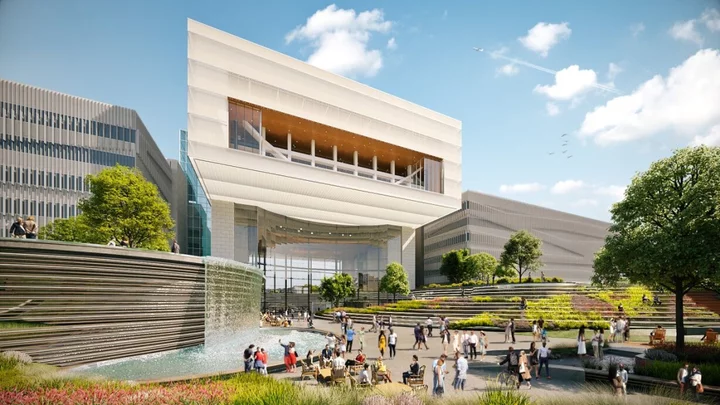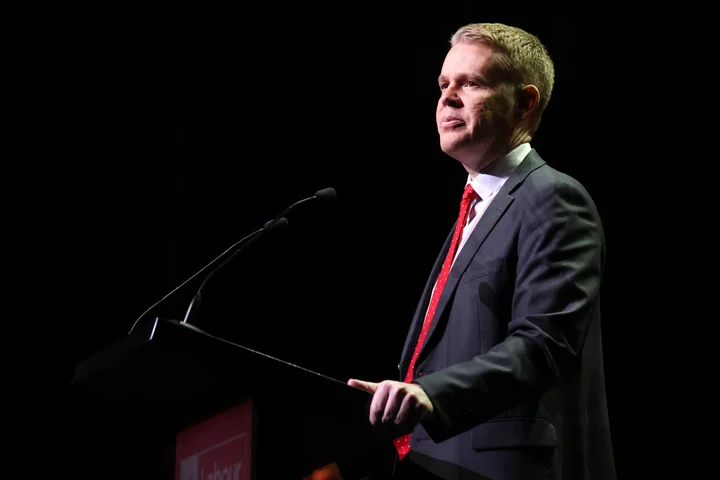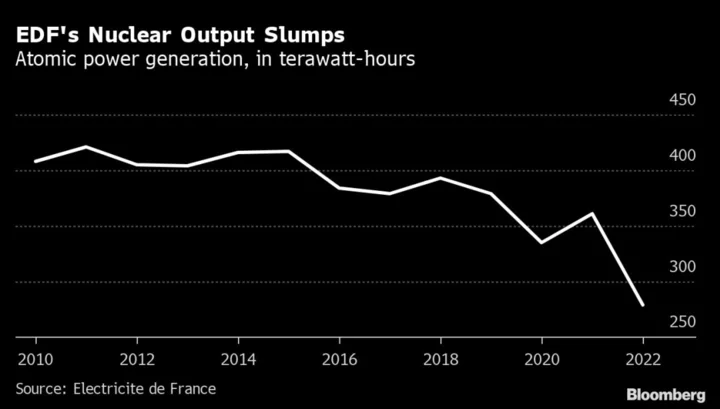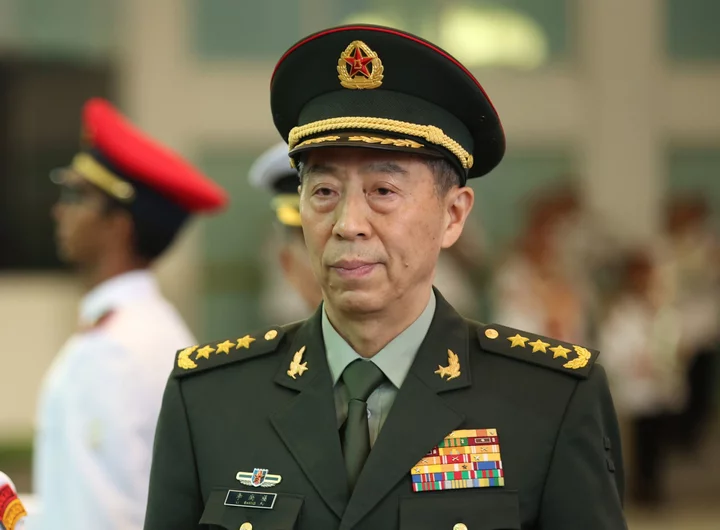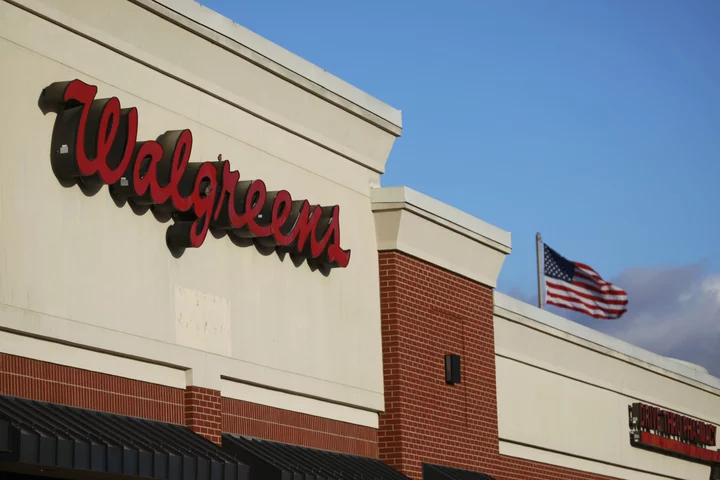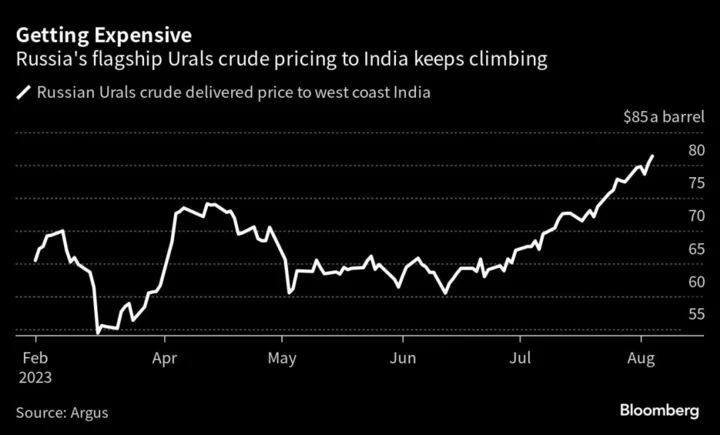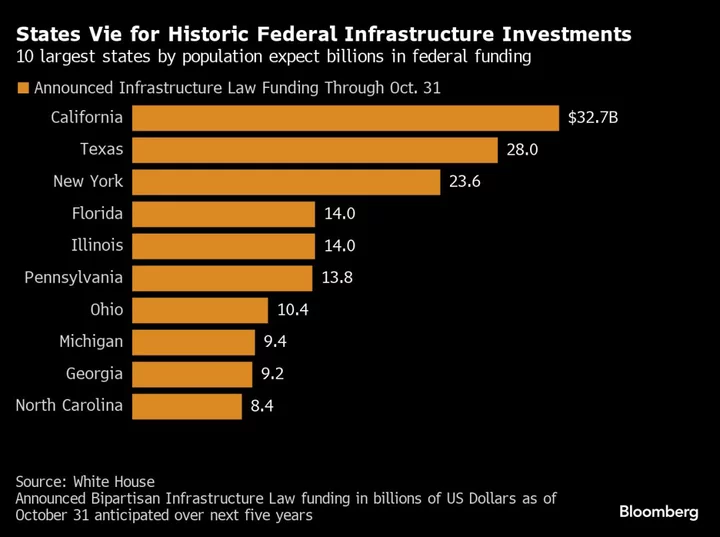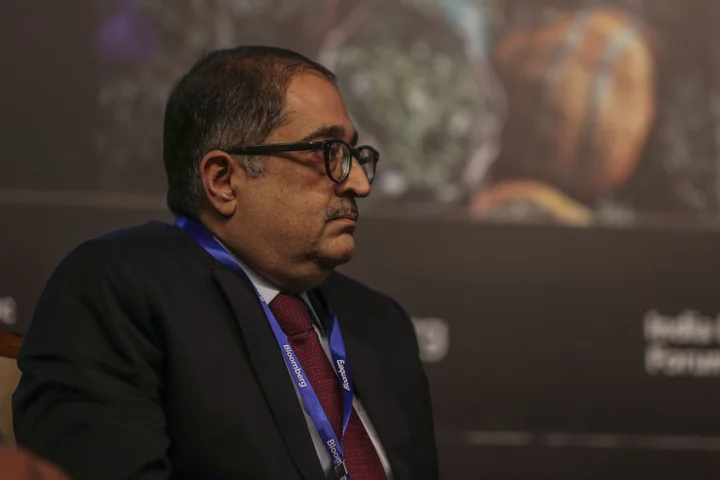A Texas oil heir’s quest to make Dallas a hub for biotech is showing signs of paying off, potentially paving the way for scientific discoveries ranging from reviving the woolly mammoth to treatments for cancer.
Lyda Hill, the 81-year-old granddaughter of wildcatter H.L. Hunt, has funneled millions of philanthropic and investment dollars into developing the industry in her hometown. In September, her marquee project, an office campus modeled after the Kendall Square innovation district near MIT, scored a big win when it was named one of the three headquarters for the federal government’s new health research institutes.
Hill is extending a family tradition in helping shape Dallas. Her grandfather and assorted relatives were instrumental in turning the city into a center for oil and gas, and she’s now seeking to usher in what she hopes is its next era.
Her biotech push is coming up against the city’s geographic sprawl and a relative lack of capital compared with hubs like Boston or San Francisco. But it echoes efforts by cities including Chicago and Salt Lake City, which are trying to cash in on a windfall of public and private funding for biomedical manufacturing and research in the aftermath of the pandemic.
Winning the research institute caps a successful start for Hill’s 30-month-old campus, known as Pegasus Park. It beat out Massachusetts to lure the headquarters for a $1 billion “de-extinction” startup called Colossal Biosciences that is seeking to revive the woolly mammoth along with the Tasmanian tiger and other long-gone species. Just this week, the company announced an agreement with the Mauritian Wildlife Foundation to host dodo birds if it’s successful in reviving them.
BioLabs, a co-working company focused on the life sciences industry, has its only US location outside the coastal states at Pegasus Park. And now it will have the new federal research hub that will focus on project management for biotech studies and trials.
Hill, who declined a request for an interview, is from one of the most prominent Dallas dynasties, though she zealously guards her privacy. Her grandfather, an avid gambler who grew up on an Illinois farm, turned a $50 loan into what eventually became one of the largest US oil companies, with Life Magazine calling him the richest man in the US in 1948.
He had 15 children, including Hill’s mother Margaret Hunt Hill, who has an iconic bridge named after her over the Trinity River in Dallas. Lamar Hunt founded the American Football League and created the Super Bowl.
Many of the descendants of H.L. Hunt have gone on to be influential figures, mostly in Dallas but also Kansas City and Chicago. They’ve built skyscrapers and bought sports teams, and used their fortunes to give back. Clark Hunt, chief executive of the Kansas City Chiefs, leads the Hunt Family Foundation that focuses on providing basic necessities for those in need. Luxury hotel magnate Caroline Rose Hunt, who died in 2018, joined with her grandchildren to donate $5 million to United Way of Metropolitan Dallas in 2015.
“There’s a reputation for wealth building, but there’s also a reputation for setting that aside in favor of community building and doing something that’s gonna benefit the city long term,” said Cal Jillson, a professor at Southern Methodist University in Dallas.
Hill has done just that in the life sciences industry, partly motivated by her own battle with breast cancer. Her charitable donations include $50 million to the University of Texas MD Anderson Cancer Center’s Moon Shots Program; $50 million to the UT Southwestern Medical Center that was partly used to create the Lyda Hill Department of Bioinformatics; $20 million to the Hockaday School, a private all girls school in Dallas, to fund science-focused programs; and $30 million to the Dallas-based Meadows Mental Health Policy Institute.
On the investment side, she provided early funding to Peloton Therapeutics, which was acquired by Merck & Co. in 2019.
For now, most of her attention is going to Pegasus Park, which seeks to overcome one of Dallas’s most vexing challenges to becoming a biotech hub. Cities like Boston, San Francisco and New York enjoy a concentration of capital, entrepreneurs and academia in a small area. Dallas struggles with dispersion — while the city’s population is 1.3 million, the sprawling Dallas-Fort Worth metro area boasts some 8 million residents.
“Metros that are the size of DFW historically have challenges finding a way to keep these companies clustered together in the same neighborhood,” said Travis McCready, the head of the life sciences practice in the Americas at JLL, a $7 billion global real estate company.
The 26-acre campus sits near the University of Texas Southwestern Medical Center, a research institute that employs six Nobel laureates. Several of the professors work on startups that operate out of BioLabs. And the campus is expanding — construction has started on a new wing that will be a laboratory facility.
Steve Case, the billionaire co-founder of AOL, said during a visit to Pegasus Park in September that such hubs can fuel innovation just by bringing together people from different companies and institutions who wouldn’t normally collaborate.
“The very beginning of what’s happening here is quite encouraging and I think bodes well for this next chapter,” said Case, who now runs investment firm Revolution, which focuses on investments in places outside of traditional venture hubs like San Francisco and Boston.
What Dallas lacks, and what Case’s firm is trying to solve, is access to capital. Venture capital funding in Dallas was $157 million in the third quarter, versus $10.2 billion in San Francisco and $3.5 billion in Boston, according to PitchBook data.
BioLabs has been hosting informal meetings at Old Parkland, an office park in Dallas that houses asset management firms, to tout investment opportunities at Pegasus Park. Gabby Everett, a scientist and director of the Dallas Biolabs site, said there are ongoing discussions between some founders and investors.
Hill’s representatives say her involvement in Pegasus Park includes a mix of philanthropic efforts and for-profit investments, but declined to provide a detailed breakdown.
Another developer is looking to cash in on the biotech industry in North Texas. NexPoint founder James Dondero has proposed a $4 billion project that would convert Ross Perot’s former Electronic Data Systems campus in the Dallas suburb of Plano into a life sciences hub. NexPoint received rezoning approval from the Plano city council in November.
The region is already home to major life science firms including Irving-based McKesson Corp. and Galderma, which has its US headquarters in Fort Worth. The DFW airport was one of the first in the country to support cold chain cargo for pharmaceutical shipments.
Texas economist Ray Perryman said North Texas has all the ingredients for a thriving life sciences community including a large and expanding population, skilled workforce, quality health care systems, research and education centers and a vibrant financial sector.
“Dallas-Fort Worth has tremendous potential to be a biotech, life sciences hub of global significance,” he said. “The industry has been growing very rapidly and it’s viewed favorably by the investment community.”

